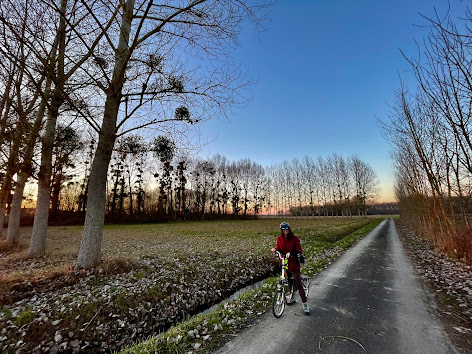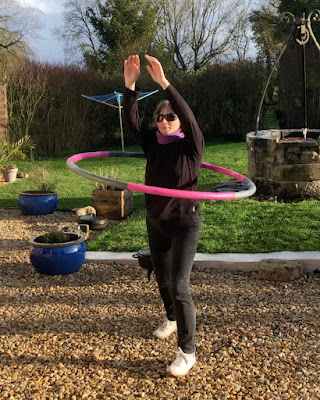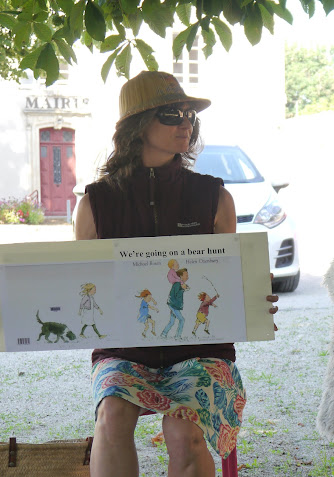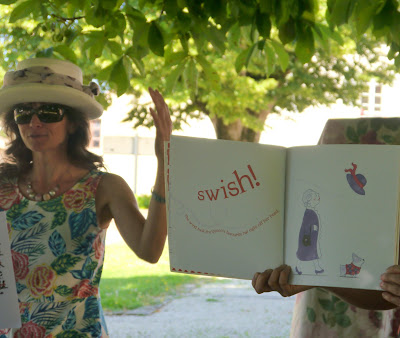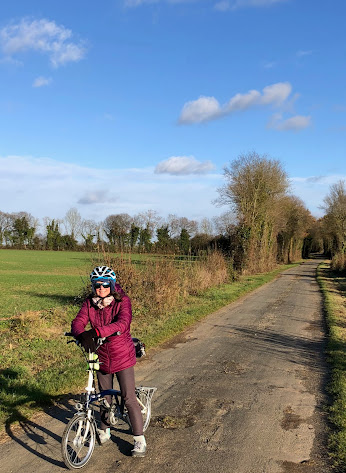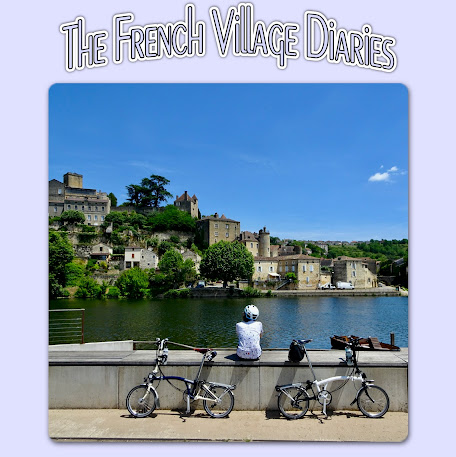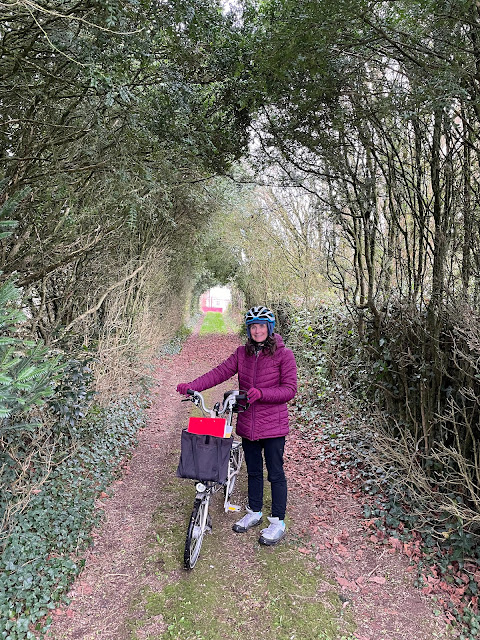
Poking around the hidden corners of the village

The official village nosey parker
In the last ten days, I’ve covered over one hundred kilometres on my bike just noseying around our commune. In addition to the main village where the Mairie is situated, the commune is a collection of six small hamlets, with over two hundred properties, covering an area just over twenty kilometres squared.
I’ve poked my nose into gardens, driveways and narrow lanes I’ve never before noticed. I’ve peered into letterboxes, noted whether shutters are always closed and whether cars come and go. In short, I’ve been a real village nosey parker. I’ve rung doorbells, knocked on doors and been welcomed into stranger’s homes - surprisingly often by dressing gown clad mamies and papis. I’ve met new people, caught up with those I’ve not spoken to in a while and shared a smile and a chat with those who don’t see many visitors. Welcome to the world of the census agent.
Recensement de la population - 2022
In France, the census is carried out on a rolling five-year basis, with different communes of under 10,000 residents being counted each year. For the larger towns and cities, a percentage of the districts are counted each year and the data extrapolated.
My friend, and local author, Alison Morton, who is more knowledgeable on the Romans than the Romans, has this to say on the history of the census, which she’s kindly let me share:
The censor in Ancient Rome was a magistrate responsible for maintaining the census, supervising public morality, and overseeing certain aspects of the government's finances.
The power of the censor was absolute: no magistrate could oppose his decisions, and only another censor who succeeded him could cancel those decisions. The censor's regulation of public morality is the origin of the modern meaning of the words censor and censorship.
This might have made me feel rather important if it weren’t for the reality check of knocking on doors and trying to drum up enthusiasm for the occupant to fill in their census forms. This is the fourth census since we’ve lived here, and I think it says something that I am the fourth different person to be the census agent. This year, INSEE (French national statistics office) are encouraging those who can, to fill in their questionnaires online, thus reducing the contact risk of the agent having to sit at every kitchen table as forms are completed. While I am enjoying the social contact and organisational aspect of the role, I have to admit my covid contamination riskometer is being tested to its limits and my smile has sometimes slipped behind my mask.
The census runs from 20th January to 19th February and to date, I’ve had a response rate of just over 50%. There are 18% of houses that are empty or second homes, which aren’t counted, and I’m still waiting for the remaining 30% to reply. I’ve certainly had more warm welcomes from the older people and more empty promises to fill in the online questionnaires from the younger residents. I also noticed that it was those who are recent arrivals to the village who were among the first to respond.
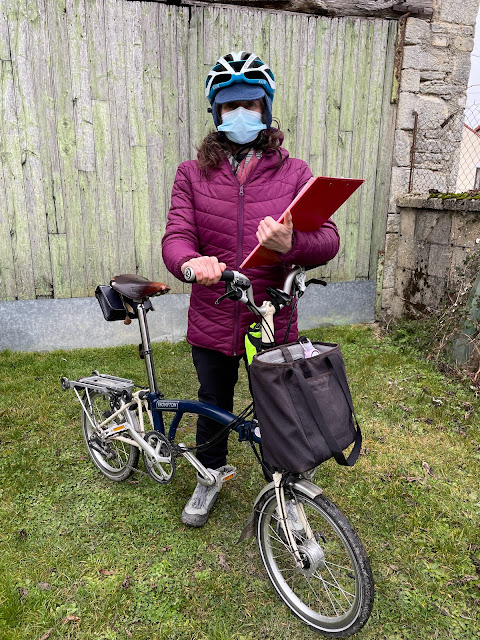 |
| Have you seen this Ewok? |
My reputation as the funny (mad) Englishwoman on her bike has been reinforced and I must look quite a sight at their door hidden beneath a cycle helmet with fleecy under hat, mask and cosy coat, juggling gloves, pens, glasses and my bright red clipboard. Some days the temperature hasn’t risen above -3ºc and even with two pairs of gloves, my fingers have been like blocks of ice. January seems a cruel month to hold the census and it could be a long three weeks until it comes to an end.
When your commune holds its census, please spare a thought for the census agent and fill in your form online. It’s easy to do and really doesn’t take too much time. The more people counted, the more money your commune will receive from the State, so the healthier the budget the council have to work with. Thank you.
You might enjoy checking out some of Alison Morton’s books, so I’ve added their Amazon links to the bottom of this post.
From the Writing Desk my interview with Alison Morton



